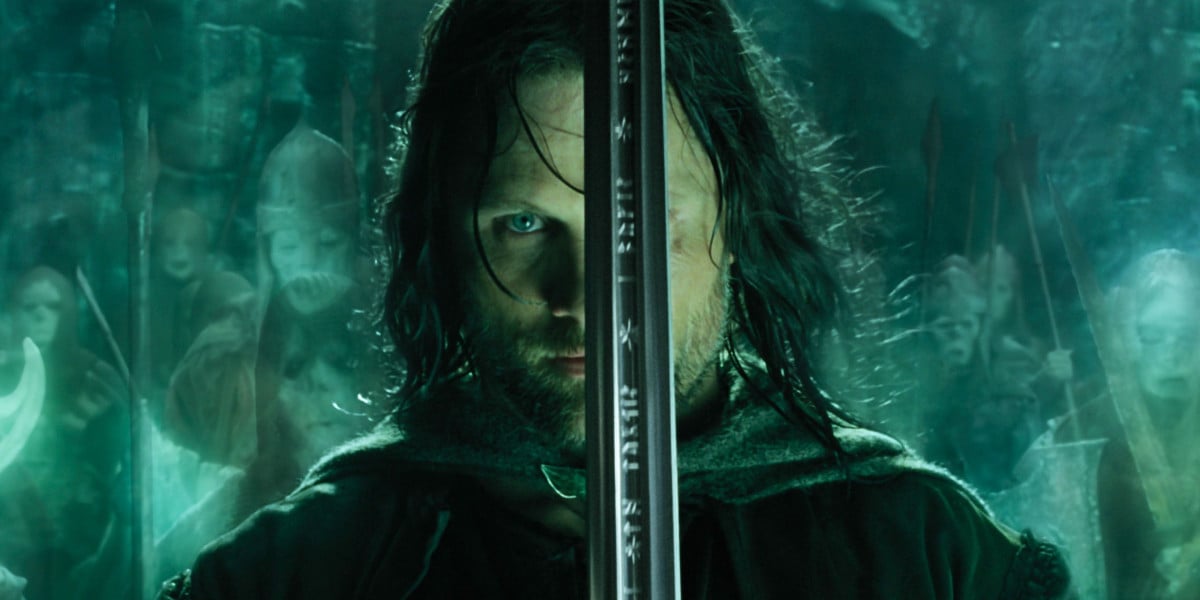It’s 20 Years Old and ‘The Lord of The Rings: The Return of the King’ Hasn’t Lost Any of Its Magic

This year marks 20 years since The Lord of the Rings: The Return of the King was released in cinemas for the first time, and it’s making me emotional. I didn’t even see the movie during its original run. I was too young, too uninterested in the fantasy genre—honestly, it’s a time of my life that feels utterly disconnected from who I am now.
But since then, thankfully, I have seen Peter Jackson’s cinematic adaptations of The Lord of the Rings plenty of times on the big screen. The Prince Charles Cinema in London hosted a day-time marathon of the extended editions a few years ago, which I went to with my cousin. Back in 2021, I went to a similar marathon at the BFI IMAX (also in London) where they showed the theatrical versions back to back. I’ve seen The Fellowship of the Ring live in concert, an experience I’d highly recommend; I’m also seeing The Lord of the Rings: The Two Towers that way later this year.
The U.S. is lucky enough to be getting an extended edition cinema re-release on April 13, with a new introduction from Frodo Baggins himself, Elijah Wood. Cinemark, Regal, and AMC have all listed special anniversary screenings of the film. I’m still keeping my fingers crossed for the U.K.
But what makes The Lord of the Rings movies so unique, memorable, and iconic? Why has no other fantasy adaptation really been able to come close to its success–even its own prequel trilogy, The Hobbit?
‘The Lord of the Rings’ trilogy was truly a product of its time
Warner Bros. and New Line Cinema essentially gave Peter Jackson, Philippa Boyens, and Fran Walsh the keys to the Tolkien kingdom. In the late 1990s, Jackson was mostly known for making fun, campy horror movies. The Lord of the Rings and Middle-earth’s mythology is so vast, so complicated, and so incredibly beloved, that anyone taking on the responsibility of adapting it would surely struggle. Jackon and co., however, took on the task with aplomb, and somehow, against the odds, created a nearly universally loved adaptation of one of the most famous book trilogies of all time.
Anyone who has watched the “making of” documentary of The Lord of the Rings knows how much time and effort and artistry went into making these movies. They filmed back-to-back, remotely, in New Zealand. Online scoopers and leaks didn’t exist back then, and the films could be made undisturbed. That cast coming together with that crew could only really happen once in a lifetime.
And while there are plenty of book fans who disagree with some of the choices made in these movies, like the exclusion of Tom Bombadil (a change I agree with), or neglecting to include the scouring of the Shire (a change I think I disagree with? I go back and forth on this one), it’s difficult to deny the impact these films had on popular culture, on the way fantasy was viewed by the general audience and by the film industry. The Return of the King was a high-fantasy movie that won all 11 Oscars that it was nominated for, including the big categories, such as Best Picture and Best Director.
I am of the mind that without The Return of the King‘s achievements at the Oscars, a film like Everything, Everywhere, All At Once wouldn’t have been able to succeed as it did. The Lord of the Rings trilogy and The Return of the King, especially, did so much to level the playing field for genre films.
Could that same ‘The Lord of the Rings’ magic be recaptured now?
I’m not so sure. I believe you only have to look at what happened to the trilogy of The Hobbit movies to see how much has changed since the early 2000s. Despite Jackson’s involvement, studio interference during The Hobbit‘s production was reportedly too intense; forcing a singular children’s novel into becoming three feature-length films, dragging them out for the sake of profit. And while I genuinely love The Hobbit trilogy for various reasons (Lee Pace’s portrayal of Thranduil fundamentally changed me as a human being), I’d argue it’s not as rewatchable as The Lord of the Rings, though it makes me sad to say so.
Though there are plenty of teary moments in The Fellowship of the Ring and The Two Towers, The Return of the King always gets to me. It’s my favorite of the three, even though I know many people would disagree with me there. But The Sacrifice of Faramir, The Lighting of the Beacons, The Ride of the Rohirrim, Sam’s gorgeous loyalty to Frodo as he carries him up Mount Doom–those moments alone make it my favorite, and I’ll likely love it just as much another 20 years from now.
(featured image: Warner Bros. / New Line)
Have a tip we should know? tips@themarysue.com